Archive for July 13th, 2012

Police charge suspect TV robbers
(CNS): Four men are expected to appear incourt on Monday charged in connection with the robbery at the WestStar offices in May. Continuing their recent success in rounding up suspected armed robbers the police said Friday that three men, aged 23, 27 and 33 years, have been charged with robbery and possession of an imitation firearm with intent to commit an indictable offence while a fourth man who is 29 has been charged with handling stolen property. The men are accused of holding up staff at the customer service offices of the local TV station in George Town during a daylight heist.
The charges come in the wake of a series of arrests over the last week or so in connection with an armed robbery at Cayman National Bank last month when three masked and armed men stole around a half million dollars. However, the men collided with an armoured cash van as they attempted to getaway and dropped some $100,000 when they were forced to flee on foot.
Shortly after the daylight bank heist police arrested one man in an operation in West Bay and soon rounded up seven suspects in connection with both the bank and WestStar TV hold ups.
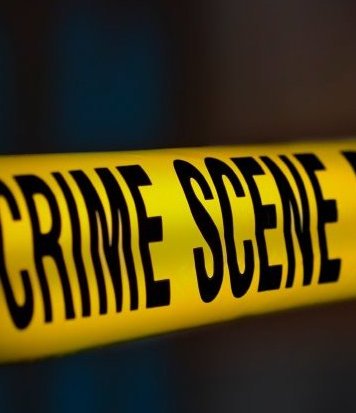
North Side man arrested following drug bust
 (CNS): Police have arrested a 20-year-old man and seized his car after a drug bust in North Side yesterday afternoon. An RCIPS spokesperson said the operation led to the recovery of an undisclosed quantity of ganja and drugs paraphernalia. The North side man was arrested for possession with intent to supply ganja, possession of ganja and suspicion of consuming a controlled drug. Insp. Mitchell, the Deputy District Commander for the Eastern Districts said the bust demonstrated a commitment to addressing crime impacting the district.
(CNS): Police have arrested a 20-year-old man and seized his car after a drug bust in North Side yesterday afternoon. An RCIPS spokesperson said the operation led to the recovery of an undisclosed quantity of ganja and drugs paraphernalia. The North side man was arrested for possession with intent to supply ganja, possession of ganja and suspicion of consuming a controlled drug. Insp. Mitchell, the Deputy District Commander for the Eastern Districts said the bust demonstrated a commitment to addressing crime impacting the district.
“We will work diligently to ensure that the residents of the Eastern Districts receive a quick response to issues that affect our communities. This also serves as a strong warning to people who engage in illegal drugs activity that we will seize all evidence necessary as we carry out the investigation,” he said.
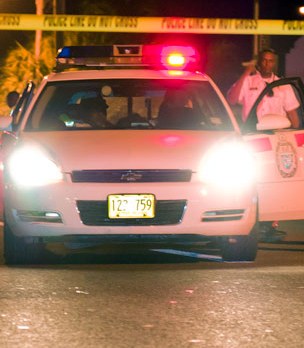
Cops arrest teen over gun
 CNS): Police have a arrested a 16-year-old boy in connection with a number of serious offences, including the possession of a firearm and ammunition as well as stealing a car. An RCIPS spokesperson said the youngster was apprehended by officers on Thursday afternoon following a break-in at a Bodden Town address. The teenager was arrested after the police spotted what was reported as a stolen vehicle which had left the scene of the burglary at the Cayman Crossing condo complex in South Sound Road, George Town.
CNS): Police have a arrested a 16-year-old boy in connection with a number of serious offences, including the possession of a firearm and ammunition as well as stealing a car. An RCIPS spokesperson said the youngster was apprehended by officers on Thursday afternoon following a break-in at a Bodden Town address. The teenager was arrested after the police spotted what was reported as a stolen vehicle which had left the scene of the burglary at the Cayman Crossing condo complex in South Sound Road, George Town.
Police were informed that the suspected burglar had left the scene in a stolen Honda CRV, which was later seen by officers in the South Sound area, where the driver stopped the vehicle and ran off. Officers gave chase and arrested him a short distance away from the abandonded stolen car. The gun and an undisclosed quantity of ammunition were subsequently recovered.
Police said the teenager has been arrested on suspicion of possession of an unlicensed firearm, burglary and taking and driving away a vehicle without the owner's consent. He remains in police custody while enquiries into the matter continue.

From self-reliance to the loser-mentality
The Cayman generations of the 40’s 50’s and 60’s and before were world-renowned for their self reliance and tenacity in the face of adversity. The men were sometimes called ‘iron-men’ who mastered ‘wooden ships’ and later some of the world’s largest super tanker and ore carriers. The strength and resilience of the women were reflected in their management of their family’s affairs, their child rearing skills and their instilling of strong values in their children.
Self reliance and strength of moral character were a key part of the Cayman psyche.
That was then but this is now.
Update to the second decade of the 21st century and the 'loser-mentality' has enveloped almost every aspect of our society, from top to bottom.
The change came relatively quickly during the 70’s 80’s and 90’s as the financial, real estate and tourism industries exploded. Those generations were not prepared for the sudden inflow of wealth and the educational requirements to compete in this new society.
Successive British administrators and later elected governments failed to have the foresight to predict the future needs of the country and its people. Caymanians wanted and deserved to stay at home and enjoy the new found wealth in their own country, rather than to traverse the oceans as seamen.
The sale of our lands and beaches brought instant wealth to many – a wealth that only a few managed to invest wisely, and only a minority managed to acquire the aggressive skills and educational background necessary to survive in this new economy.
By the late 90’s a good proportion of the then-generation had managed to acquire better educational backgrounds, many by studying abroad. They returned home full of excitement and enthusiasm only to find out that those who had helped to create the tourism, legal and financial industries were not as welcoming to locals into these industries as the locals had earlier welcomed them to Cayman to establish themselves and these industries in the country.
As the economic boom diminished, it is not surprising that discontent and crime increased rapidly as it has in the local population in the past 20 years.
We are at the beginning of the second decade of a new century and our situation has deteriorated beyond belief. Those that we welcomed to our country now own the best beaches, the best homes, the best jobs, and control the wealth that Caymanians believed theydeserve and would have received.
There are many factors that brought us to where we are. So who do we blame for our plight? There is plenty of blame to go around, but the blame-game is a road that has no end, and will go on forever, and it will accomplish nothing but hatred and disharmony in the society.
My suggestion is that we blame no particular group or party. We stop targeting others for our misfortune. We examine where we are and look back at how we got here, but don’t waste our time or energy blaming others.
We need to look at ourselves individually and ask: ‘Do we still have any moral values? Do we have any pride left in our being? Are we self-reliant like our forefathers? Do we have the attitude that we can change the plight of our family and our country? How do we improve our own lives and the lives of those around us?’
As I said at the beginning, the loser-mentality has a stronghold in our society. Our moral character and spirit of self-reliance has for the most part been buried with our grand-parents and parents.
A large section of our population will apparently sell our souls for a few dollars, a new appliance here, a promise of a job there, a financial benefit or other gift in exchange for your vote. A special relationship with government that benefits ourselves, but we know that it is at the expense of the society generally.
These benefits of getting something for nothing, of gaining at the expense of our country, of a special deal that puts us at an advantage over our competitors are, my friends, the underbelly of corruption.
It does not matter how poor you are or how rich you are, YOU ARE A LOSER if you accept gifts from someone, whether it be a dollar or a special contract, in exchange for anything that benefits yourself and that someone in a position of trust.
We need to rise above this, otherwise our society will become so embedded with corruption that there will be no hope for our children’s future. We will become dependent on the bearer of gifts who have ulterior motives that will eventually harm us more than it helped us.
The greatest harm of all is that our moral values and spirit of self reliance will become just a memory of the greatest part of who we were, a long time ago.
We can do better than this, my friends. Start by not being tricked into believing that we can get something for nothing. We can individually rebuild our values and self- reliance one step at a time – no matter how poor or rich we are.
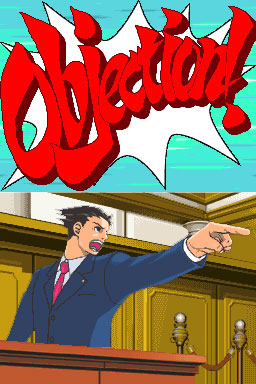
Consultation ends on controversial legal aid bill
 (CNS): Government must now decide whether to take note of the extensive comments it received from the Cayman’s Criminal Defence Bar Association on its latest efforts to address the vexing issue of funding the country’s mounting legal aid bill. Friday is the deadline for submissions on the proposed legislation, which will require all lawyers to work for free for 25 hours per year or pay $2,500 to help fund criminal justice for those that can’t afford an attorney. The proposals, however, were sharply criticised by the small pool of local lawyers that are currently doing legal aid work and said it would make things even worse. The CDBA said it was an unjustified attack on lawyers representing people facing criminal charges and in particular those doing legal aid work.
(CNS): Government must now decide whether to take note of the extensive comments it received from the Cayman’s Criminal Defence Bar Association on its latest efforts to address the vexing issue of funding the country’s mounting legal aid bill. Friday is the deadline for submissions on the proposed legislation, which will require all lawyers to work for free for 25 hours per year or pay $2,500 to help fund criminal justice for those that can’t afford an attorney. The proposals, however, were sharply criticised by the small pool of local lawyers that are currently doing legal aid work and said it would make things even worse. The CDBA said it was an unjustified attack on lawyers representing people facing criminal charges and in particular those doing legal aid work.
The association also warned that having unqualified and uninsured lawyers from across the legal profession doing pro bono work representing people charged with crimes could present significant human rights problems.
In the submission, as part of the draft legal aid bill's discussion period, the CDBA president, on behalf of the entire membership, pointed to a long list of problems with the draft bill. John Furniss said that lawyers from across the various legal disciplines would not be in a position to assist with criminal defence cases and that limiting legal aid lawyers’ work load would create far more problems than it solves.
“The Cayman Islands already suffers from a chronic shortage of attorneys willing and able to undertake publicly funded work,” he wrote in the submission paper.
Although the Cayman Islands is home to more than 500 lawyers, most of them specialize in offshore finance and commercial work. Only a very small percentage of local advocates are criminal attorneys with no more than a dozen willing to do the critical legal aid work.
In an effort to try and address the escalating costs of legal aid to the public purse, brought about by the increase in serious crime for which defendants must have access to free legal representation, the government proposed a plan to force lawyers to do pro bono work. But, Furniss warns, this creates significant dangers when they must take on work for which they are not qualified and, more importantly, insured.
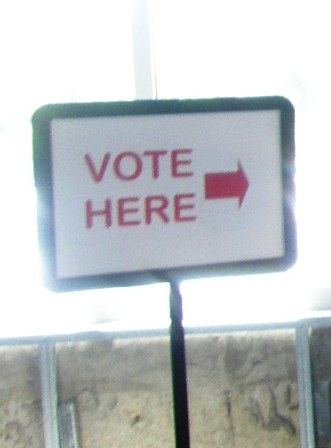
Elections officials happy to help
 (CNS): Anyone who needs help on Referendum Day next Wednesday will be able to ask staff from the Elections Office, who will be posted outside all polling stations. Officers will be happy to answer any questions that voters will have about the process. Deputy Supervisor of Elections Colford Scott said anyone needing assistance can approach Elections Office staff at the tents at the entrance of the stations in the districts. Workers are clearly identified by official picture IDs issued by the Elections Office and white polo shirts marked “Elections Office Elections Officer” or “Elections Office Referendum”, surrounding the Cayman Islands crest.
(CNS): Anyone who needs help on Referendum Day next Wednesday will be able to ask staff from the Elections Office, who will be posted outside all polling stations. Officers will be happy to answer any questions that voters will have about the process. Deputy Supervisor of Elections Colford Scott said anyone needing assistance can approach Elections Office staff at the tents at the entrance of the stations in the districts. Workers are clearly identified by official picture IDs issued by the Elections Office and white polo shirts marked “Elections Office Elections Officer” or “Elections Office Referendum”, surrounding the Cayman Islands crest.
Scott said that Elections Office workers have been given an official register of electors and their respective polling divisions and are equipped to guide voters on where to vote and other voting-related issues.
Polling stations open at 7am Wednesday and stay open throughout the day, which is a public holiday, until 6pm in the evening. The count is expected to start around 7pm.
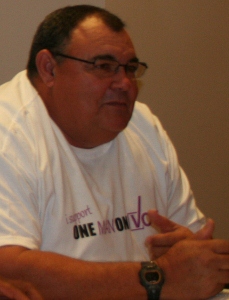
Debate rages at 11th hour
 (CNS): Less than one week before voters will go to the polls to decide on how they will vote at the next general election, members of the UDP government were themselves debating the pros and cons of the existing multi-member system with the idea of a national vote or other methods. As the OMOV campaigners focused entirely on the equality and accountability of one man, one vote during an open public debate at the Harquail Theatre, Education Minister Rolston Anglin said that the country needed far more discussion about what was the most suitable voting system for Cayman, while his colleague Ellio Solomon argued for a national poll.
(CNS): Less than one week before voters will go to the polls to decide on how they will vote at the next general election, members of the UDP government were themselves debating the pros and cons of the existing multi-member system with the idea of a national vote or other methods. As the OMOV campaigners focused entirely on the equality and accountability of one man, one vote during an open public debate at the Harquail Theatre, Education Minister Rolston Anglin said that the country needed far more discussion about what was the most suitable voting system for Cayman, while his colleague Ellio Solomon argued for a national poll.
As the indecision in the United Democratic Party ranks became apparent, local attorney Wayne Panton, North Side MLA Ezzard Miller and Chamber of Commerce President David Kirkaldy were solid in their support for equality in the voting system. Panton, who will run as a PPM candidate in the next elections, said that the Caymanian people would see on Referendum Day the need to vote for OMOV as they would recognise that all Caymanians are equal and that everyone should have one vote and equal representation.
Illustrating the debate still raging in the UDP and in contrast to the premier’s position of retaining the status quo of multi-member constituencies, backbench MLA Ellio Solomon made it clear that he supported a nationalpoll. He appeared to have some support from Anglin, his front bench colleague, whose position was that more debate was needed. He said the goal of any election system should be for candidates to attract the broadest possible support from the electorate in order to be returned rather than less, as he claimed would be the case with single member constituencies.
In a debate that could have continued into the early hours, the five panel members at the Generation Now event, which took place on Thursday evening and was broadcast on Radio Cayman, saw Miller, Panton and Kirkaldy unified on the position that one man, one vote and single member constituencies would give Cayman a more equitable and democratic system with more accountable representation.
Meanwhile, the two UDP candidates, while arguing against one man, one vote and single member constituencies, were not wholeheartedly supporting the status quo and made it clear that they saw a need for change in the country’s voting system.
Anglin said that there needed to be a much wider debate and assessment of the possible systems which could suit the Cayman Islands but failed to define exactly what he thought was the most successful way. Solomon, on the other hand, advocated his position that in a small country such as Cayman everyone could have 18 votes and elect the entire government.
“We need the right model for our small economy,” said Anglin but did not indicate exactly what he believed that would be.
Solomon said the idea of a national poll was resonating with the voters but he could not explain why government had not offered that option on the referendum. Howeveer, he said he would be “proud” to petition for it after the referendum.
Anglin said that there had not been enough debate on the subject and criticised the OMOV campaign for not coming to government and suggesting a debate on all the issues.
“There has been no debate about how we want to create a voting system,” he said as he emphasised the need to find a system that could attract the broadest base. “We need a continuing dialogue about the appropriate system for Cayman.”
However, the OMOV supporters suggested the national vote idea was merely muddying the waters as the simplest and clearest voting system was one man, one vote in single member constituencies.
Ezzard Miller, who spearheaded the OMOV campaign, pointed out that he had made several attempts to introduce a debate to the Legislative Assembly about the voting system since he was elected in 2009 but also pointed to the historic failure of governments since the 1990s to ignore the growing support across the country for OMOV.
With poll after poll indicating a support of over 80% in favour, he said, it was time to introduce the system. It was also made clear that while the referendum may not carry because of the government’s imposition of a legal require of more than 50% of the electorate rather than the turnout, if the majority of voters who turned out voted in favour this would still be a telling result that the government should still heed.